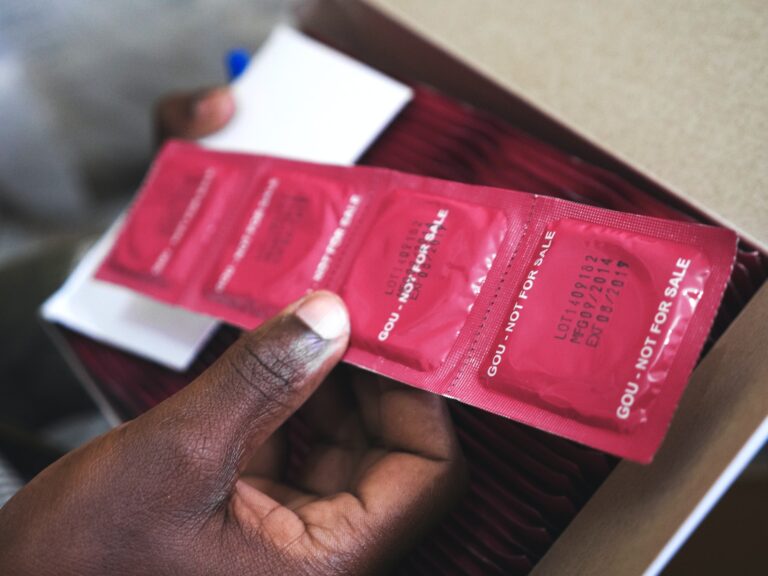When a child becomes sexually active, it’s important to communicate that their value and worth is not tied to their actions. It’s also a good time to talk about body safety.
Depending on your situation, these conversations can be difficult to have. However, they’re necessary for a healthy relationship.
1. She’s asking for more privacy
Even if you suspect your teen may be exploring sex, it can still come as a shock when you find condoms or contraceptives in their room. This could be a sign that your daughter is planning to have sex or has already had it. Seeing these items in their possession, however, isn’t necessarily a bad thing. Rather, it’s a good opportunity to talk with them about how to avoid unwanted pregnancies and sexually transmitted diseases (STD).
In addition to asking for privacy, your child might suddenly become more secretive and evasive in general. They might hide their phone when they’re at school or use passworded phones, or they might begin to use coded language in their conversations with friends. You might also notice that they’re changing their clothes to more provocative styles. These changes could mean that they’re experimenting with different ways to attract boys and show off their bodies.
It’s important to remember that, no matter what, your teen still deserves unconditional love. You’ll need to be prepared to respond, not react, when it comes time to talk about these issues. This means taking some time to think through how you want to handle the conversation before you have it. Then choose a time to talk when your daughter is in a calm and focused mindset.
2. She’s asking questions about birth control
The topic of sex can feel uncomfortable for any parent, but talking about birth control is important for her healthy development. Experts recommend not just one big talk, but several small conversations as she ages. That way, you’ll be less likely to avoid the conversation and she’ll be less hesitant. She may even start to come to you with questions, instead of just avoiding the subject.
Her questions are an excellent opportunity to discuss what options are available for her. It’s also important to debunk myths like, “Condoms don’t work,” and that a girl can get pregnant even if she isn’t on her period. You’ll also want to talk about barrier methods of birth control, such as condoms and diaphragms. You may find that she’s already familiar with them, but make sure she understands how they work to increase their effectiveness.
It’s not too late to bring up the subject of a gynecologist appointment, which is usually recommended by doctors between 13 and 15. The sooner she makes her first visit, the better. This will allow her to build a relationship with her doctor and will help her to develop a thorough understanding of her body and sexually transmitted infections. She’ll also have access to a wide range of birth control options, including hormones and prescription pills.
3. She’s developing physically
At this age, girls start undergoing changes in their body that can bring on their first period. If she’s suddenly getting her periods, this is a good time to talk to her doctor about it. This is a natural, normal process that can be very confusing for teens.
Girls will often begin to develop physical sex characteristics that can attract boys, so it’s important to teach them about healthy sexual development and how to stay safe. It’s also important to help them challenge societal gender conditioning so they understand that they can be strong, work in trades with tools, and not have to look beautiful or sexualize themselves to be successful.
It’s also important to be aware of warning signs like her dropping grades, or if she becomes obsessed with her appearance, a possible sign that she is using sex for the wrong reasons. If sex is used to mask low self-esteem or to seek attention, it can lead to serious problems down the road, such as unwanted pregnancy and sexually transmitted diseases.
Obviously, discovering your teenage daughter is sexually active can send shockwaves through the whole family. How parents respond and react is largely dependent on their unique perspective and personal experiences, but they must always be empathetic and loving. Focus on the Family’s resources offer helpful insights on navigating conversations about sex with your teen.
4. She’s asking questions about sex
As your child gets older, they may begin to ask questions about sex. Some of these conversations might be uncomfortable, but they’re also necessary to keep your teen safe. You don’t want your teen to get unreliable information from their friends or the internet. Instead, they should turn to you for the information they need.
This may include asking about the sexually transmitted diseases that can be contracted through sex or the emotional effects of being sexually active. You should be open and honest with your teen about these topics. Make sure you discuss the importance of abstaining from sex until marriage, the risks of sexting and social media, as well as the potential for pregnancy or other consequences.
If you notice that your teen has dropped grades, seems obsessed with their appearance or gives up activities they once loved, these could be warning signs that your daughter is experimenting with sex. Also be on the lookout for sudden, dramatic changes in their wardrobe. This might indicate that they’re dressing to attract boys’ attention.
See Also:



